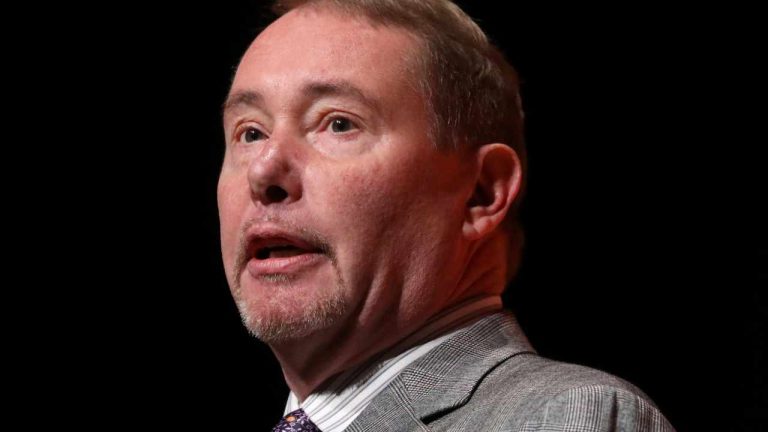
Billionaire Jeffrey Gundlach, aka the “Bond King,” has warned of “painful outcomes that are coming in the next recession.” Commenting on the Federal Reserve’s attempt to curb inflation, he cautioned: “The more you try to reduce the severity of problems, you’re going to end up ultimately having a very high severity problem.”
‘Bond King’ Jeffrey Gundlach on the Next Recession
Jeffrey Gundlach, chief executive officer and chief investment officer of investment management firm Doubleline, shared his outlook on the U.S. economy in an interview with Yahoo Finance last week. Gundlach is nicknamed “the Bond King” after he appeared on the cover of Barron’s as “The New Bond King” in 2011. According to Forbes, his net worth is currently $2.2 billion.
“It doesn’t matter if it’s a soft landing or a hard landing,” he began. “People are always asking me this question: ‘How bad is the recession going to be?’ It doesn’t matter, as long as we’re going into a recession, you have to have a certain degree of protection.” Gundlach added:
We could see some real interesting, painful outcomes that are coming in the next recession, whether it’s very severe or not.
He noted that one indicator “that is the slam dunk on recession is if the unemployment rate crosses its 36-month, three-year moving average,” emphasizing: “We’re pretty far away from that, but that doesn’t happen at the front end of a recession. If that happens, it suggests you’re in more of a hard-landing type of recession.”
The billionaire explained that the Federal Reserve, “in a backhanded way … are sort of predicting a recession themselves” because they said in December that “the unemployment rate was going to end this year at about 4.6%, up 100 basis points.” He stressed: “Historically when you get more than a 50-basis-point rise in the unemployment rate, you’ve never avoided a recession.”
Gundlach further explained: “When you have this, sort of, attempt to never have a significant downturn in the economy — Fed to the rescue, zero interest rates, quantitative easing — what you’re trying to do is avoid any type of hard landing ever.” He continued: “That type of activity violates Gundlach’s rule of financial physics, and that is that the frequency of problems times the severity of problems equals a constant.” The billionaire opined:
The more you try to reduce the severity of problems, you’re going to end up ultimately having a very high severity problem.
Do you agree with billionaire Jeffrey Gundlach about the U.S. economy? Let us know in the comments section below.
from Bitcoin News https://ift.tt/z0kb6hm
Comments
Post a Comment